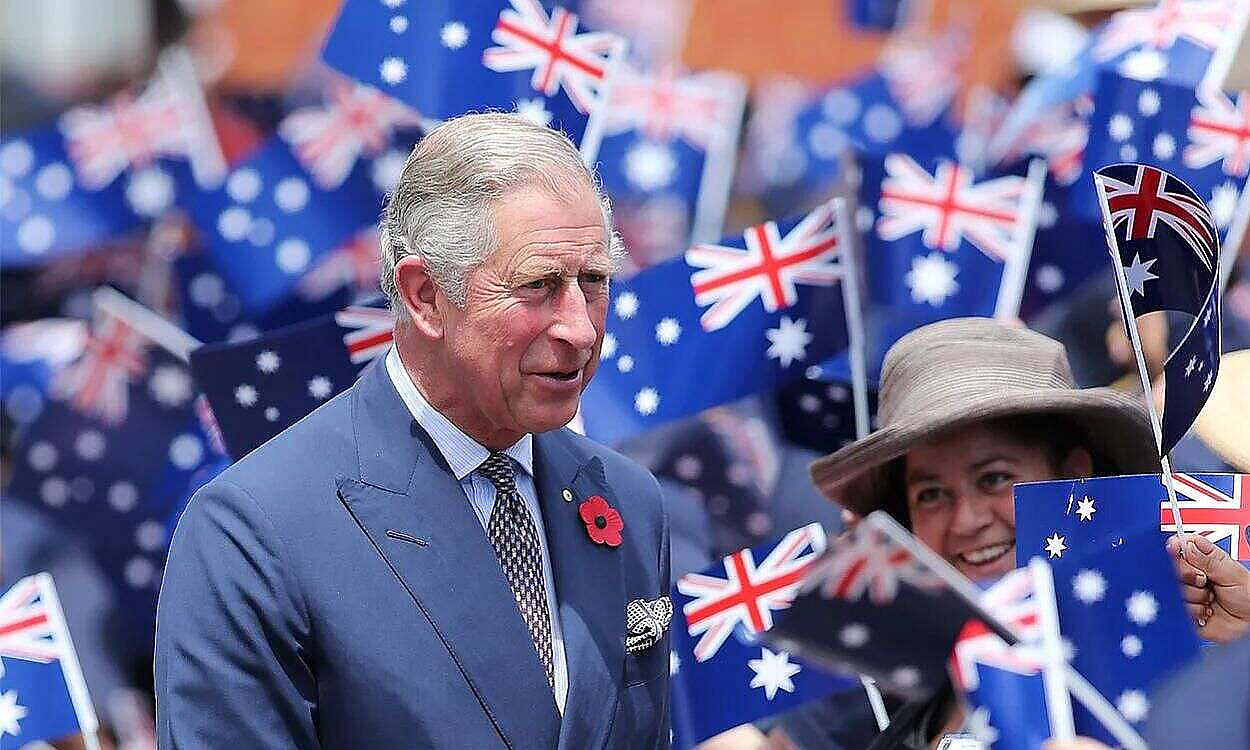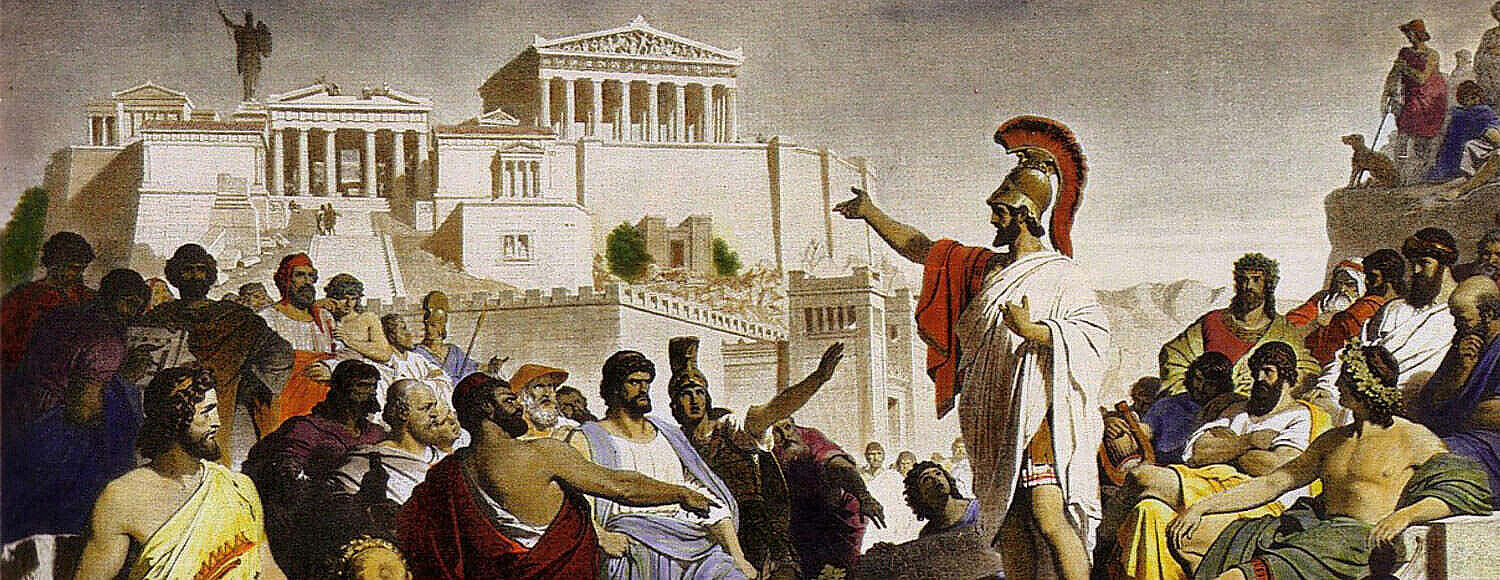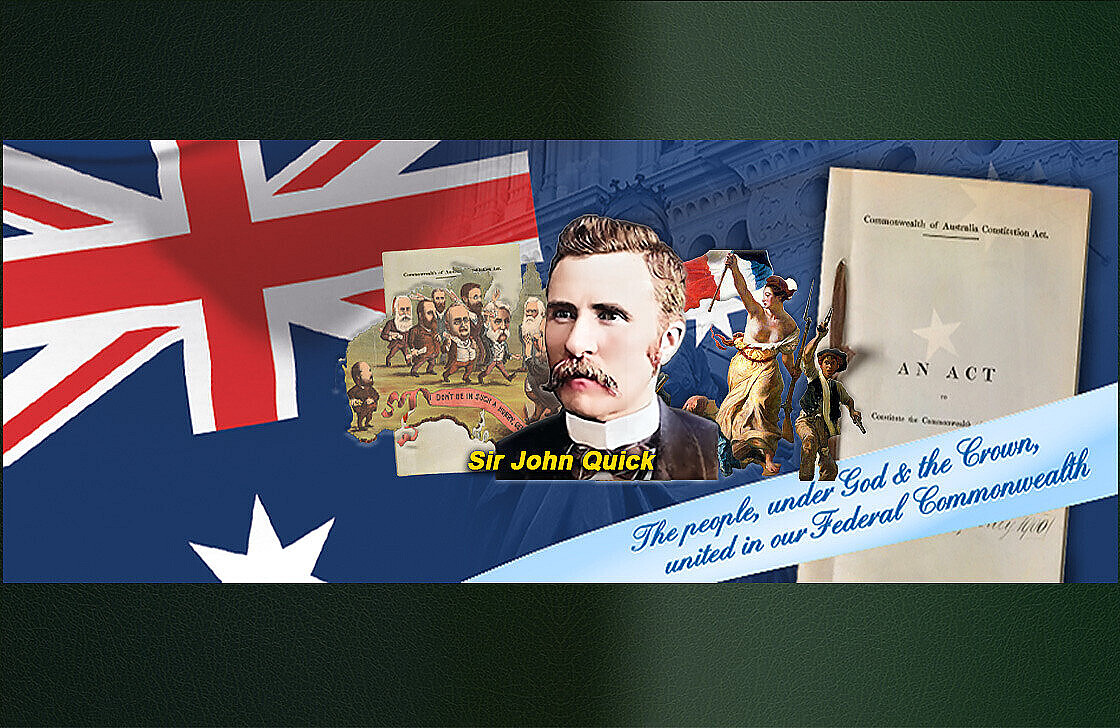Monarchy is a romantic concept. We see this when royalty comes to Australia and the attention this generates. Republicans seem to be affected by royalty, too. Professor David Flint, in a light aside to fellow constitutional monarchists, warns them never to stand between visiting royalty, even minor European royalty and republicans, especially Sydney republicans. “Otherwise, you will be at risk of being knocked over in the rush,” he says.
During the 1999 referendum, republicans criticised monarchists for not arguing about the virtues of Queen Elizabeth II. But as ACM National Convenor David Flint said, “Everyone knows we have a marvellous Sovereign. Republicans agree. And The Queen is taking no part in the debate. Her Majesty says this is a matter for us to decide. The qualities of the monarch are not the issue – the referendum is about the Constitution.”
“It is gracious of the Republicans to tell us how to campaign, but we intend to concentrate on the Australian constitution, which they are proposing to change so radically.”
The Republican movement has always aimed to get rid of The Queen. In the nineties, they devised two models to achieve this, rather than in any attempt to improve the constitution. Since then, they have refused to reveal what republic they are proposing.
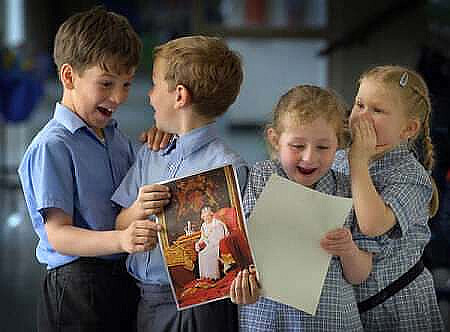
Because they are obsessed with removing The Queen, they assume that constitutional monarchists’ principal argument centres on the character of the Sovereign. All constitutional monarchists respect The Queen, as many Republicans do.
Many constitutional monarchists feel a personal loyalty to The Queen both personally and to the Australian Crown. Those who have sworn an Oath of Allegiance feel especially bound, regarding this as an important act, just as binding as the Oath sworn in court, to tell the ©, the whole truth and nothing but the truth.
Monarchists are surprised that some politicians are willing to swear their allegiance to the Bible but campaign against The Queen and the Australian Crown. After all, they were not conscripted to public office.
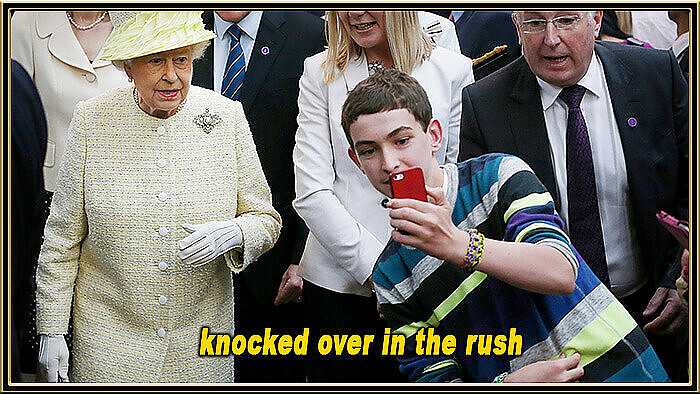
It is important to stress that for constitutional monarchists, the central defence of our constitutional system relates to the important role the Australian Crown plays in providing leadership above politics and as an effective check and balance against the political branches.
Republicans seem to assume that only elderly people of British origin are constitutional monarchists. This is not so. That monarchy appeals to the young was demonstrated graphically in a West Australian school not so long ago.
New monarchists are being born, Minister Roxon
The picture on page 1 accompanied a report by Peta O’Sullivan in The Sunday Times of 22 October 2006 about Year 1 children at Newman College, a Catholic school in Floreat, in the western suburbs of Perth.
The photograph shows the children’s reaction when they returned from their holidays and found a letter from Buckingham Palace awaiting them.
“They were so excited about it,” said teacher Mrs Annette Rose. Ms O’Sullivan reports that the royal correspondence was in response to letters the children had written to The Queen as part of an exercise on the letter Q.
Mrs Rose said: “All the Year Ones were learning about the letter Q, so I mocked up an A3 sheet with a crown at the top and got the kids to write letters to the Queen”.The letters asked, “Who cleans the palace?”, “Do you get sick of waving all the time?” and “Do you like the King?”
Mrs Rose had no intention of sending the letters to the Queen and was as surprised as the children at the reply. But when one of the mothers, Andrea Whitely, saw them in her daughter’s classroom, she told Mrs Rose that she would be visiting Highgrove and would try to give them to Prince Charles and ask him to pass them on to The Queen.
The royal response, passing on The Queen’s best wishes and congratulating the children on their beautiful work, was from The Queen’s lady-in-waiting, Susan Hussey. The report is accompanied by the photograph above. Richard Hatherly took it on 18 October 2006.
Earlier that year, on 13 March 2006, Ms Nicola Roxon, then federal shadow attorney general and later the Hon. Nicola Roxon, Minister for Health, said:
“There are no new monarchists being born,” she said, only months after swearing or affirming her allegiance to the Sovereign. “If we bide our time, they will all die off…”
She reflects the views of many Republicans, most frequently expressed by former senator and minister, the Hon. Susan Ryan.
But polling among West Australian youth shows that support for a republic among the youth has collapsed. According to a report by Melissa Kent in The West Australian of 8 September 2006, republicans may have to rethink the theory that” the monarchists who spoilt their party back in 1999 will eventually die out.”
According to the West’s major iGeneration survey of those aged 18 to 30, support for a republic among that crucial group, the young, is in free fall. When the West’s survey of youth attitudes was taken two years before, 53% of young people indicated some support for change to a republic. This has dramatically fallen to a low of 38%.
We suspect this must have introduced a dose of reality into Republican ranks.
Losing more than magic, It is years since the proposal for a republic was lost in the referendum in 1999.
Referendums are soon forgotten, but in 1903, in 2003, a member of the public asked a reporter: “Didn’t we decide to become a republic in 1999?”
This confirms Malcolm Turnbull’s telling assessment four months before the referendum: “We have Buckley’s chance of winning. Nobody is interested.”
So we got through the end of the century, the start of the new millennium, the centenary of the federation, and the Olympic Games without becoming what Professor Gilbert, the Vice Chancellor of the University of Melbourne, solemnly predicted if the nation were to vote”No” in the 1999 referendum- an “international laughing stock”.
After East Timor and weathering the Asian economic crisis, we are respected, admired and even envied. And along with the other countries which are the most attractive to live in, according to the United Nations, we have retained the Crown in our constitutional system.
So where stands the republic today? Were its chances improved at the conference at Corowa in late 2001? Former Governor Richard McGarvie had worked for so long to make that a success. But at the last minute, all his hard work was to be taken over by a solid phalanx of Republican lawyers. The result? Professor Greg Craven summed it up. Until the conference, he believed, Australia’s chances of becoming a republic were slim. After Corowa, he concluded, they were non-existent.
The difficulty for most Republicans is that few appreciate – or even fully understand – our present constitutional system. Most Australians, unlike Republicans, even if they don’t fully understand it, know that it works and works better than most. The Crown is not just some disposable appendage. It is central to the Constitution, a pristine institution above politics which is at its very heart. To adapt the description of a British republican think-tank, the Australian Crown is:
The essence of our executive governments, state and federal,
a significant part of our Parliaments,
the spine of our judiciary,
the employer of our public services,
the commander-in-chief of the army, navy and air force,
the guardian of our constitutions, and
the lynchpin linking the federal structure with the states.
The Crown was imported from Britain, but – and this is most important – it was adapted to our needs. In brief, it was Australianised. This is also the case with our law, other institutions and language – none of which we would readily abandon. Apart from sharing one sovereign in what international lawyers call a personal union, the Australian Crown is an institution separate and apart from the Canadian, British and many other Crowns.
And if this were not so, the High Court would not have ruled in 1999 that former One Nation Senator Heather Hill could not sit in the Senate: Sue v Hill.
The Australian Crown is personalised at its pinnacle by the Queen of Australia, who will normally act on the advice of her Australian Prime Minister. But most of the Crown’s federal powers are normally exercised by our Governor-General, those of the States by the Governors.
So at the heart of our constitutional and legal system, there is thus a vast institution beyond politics. There is no reason why we could not remove it if that is what we really want to do.
But we owe it to ourselves, our parents and our children to understand and to be fully informed on what we are removing. And equally, we ought to know precisely what we are putting in its place.
As with the flag, which Mr Keating says “gets up his nose”, republicans don’t like the Constitution but don’t know or can’t agree on a replacement.
The flag is now unassailable, and few place importance on removing the Australian Crown.
In any event, on one view of what a republic is, our Republicans are not really Republicans. They want to keep at the heart of the constitution a political no-go area, an institution above politics. In other words, they want the Crown but without the Sovereign. But they can’t have their cake and eat it too. And precisely because of this quandary, the Republican movement resorts to publicity stunts instead of developing a workable, acceptable and truly Republican model.
2001’s stunt demanded that the Queen of Australia give back the Tom Roberts painting, which hangs permanently in Parliament House. They might as well have asked The Queen to return our Crown land – an equally ludicrous proposition.
In 2002 it was an ARM call for State Governors to be elected as if State Premiers would want a politician above them with a greater mandate than their own. The Premiers were not prepared to be like a group of foolish turkeys voting for an early Christmas! They refused. The Sydney Morning Herald declared the proposal an ARM “no brainer”!
Australians can, of course, decide to remove the Crown. But either we replace it with an institution of equal dimension and equally above politics, or we design a new constitutional system for the states and the federation.
Obviously, we should not replace the Crown with another politician. Nor should we replace the Governor-General with a functionary whose tenure depends on a prime ministerial whim. Nor should we replace the Crown with a clever contraption or device – a moving feast of former Governors-General and Chief Justices. So after a good decade of debating and campaigning, a failed referendum and millions of dollars of taxpayers’ funds, republicans ought to concede that finding a substitute for the Crown is extremely difficult, if not impossible.
They are left with the difficult task of proposing a completely new constitution. Now there is one Republican model which is tried and tested. It involves having three political institutions, the executive, the Congress and the Supreme Court, locked in perpetual adversarial combat – the American system. It wasn’t intended to be like that, but the civil war excepted it does work, unfortunately, only in the United States. But it might work on the soil of another country where English, the rule of law, the common law and parliament are as entrenched as in the American colonies.
Without a general collapse of our institutions and some terrible crisis, it is hard to see Australians wanting such a change. Another factor suddenly came into the foreground in the Golden Jubilee year – what Bagehot called the “magic of monarchy”.
Back in the referendum campaign, republicans tried to instruct the No case on how they should run their campaign. They wanted to see the campaign dominated by a debate about the sovereign and her family. But as it was a constitutional referendum, so constitutionalists ran it on constitutional issues.
This was not to deny the magic of monarchy, which became so obvious. So when Mike Carlton suggested in the Sydney Morning Herald that few would care about the Queen Mother’s funeral except some bemused Japanese tourists, he had to eat his words as did so many commentators here and in Britain when the Commonwealth honoured their Queen on her Golden Jubilee.
Republicans are not immune. Indeed, they seem particularly affected by the magic of monarchy. If there is a royal occasion in Australia, expect to be elbowed out of the way by Republicans. It happened on Diana’s last visit. And on the formal occasions for each of the Queen’s visits to Australia, the receptions have been filled with eager Republicans.
We may certainly dispense with the magic of monarchy. It is, after all, but a bonus – and not the essence. And we may even remove the Crown from our constitution – if we know what we are doing and have something as good – or better to replace it.

